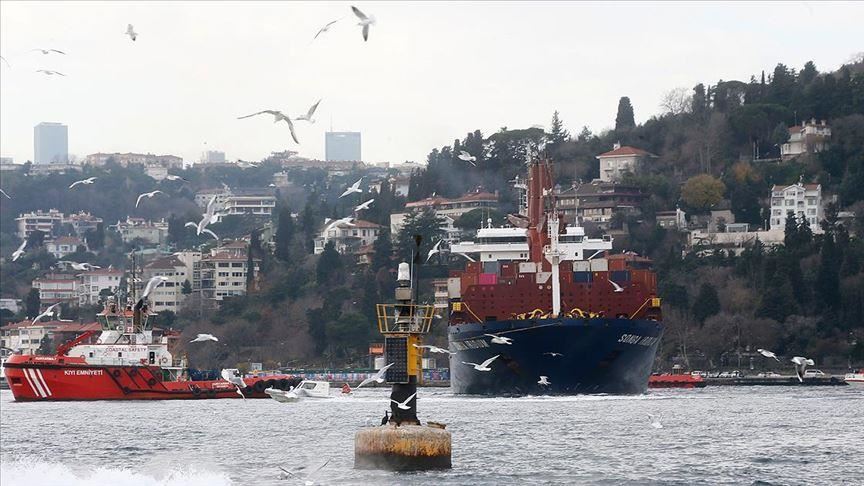
Türkiye's Minister of Transport and Infrastructure Abdulkadir Uraloglu announced significant improvements in maritime safety and the nationalization of the fleet due to new-generation local tugboats, equipment and systems.
"We are building a safer and fully national Türkiye at sea," Uraloglu stated during a press briefing at the Istanbul Ship Traffic Services Center.
During his visit, Uraloglu emphasized Türkiye's historic control over the seas, extending from the Black Sea to the Mediterranean, and their ambition to maintain this dominance. "Our seas are our blue homeland," he remarked, underscoring the significance of maritime territories as equivalent to land.
Uraloglu also discussed the vital role of the Turkish Straits as a global transit corridor. "The Turkish Straits, including the Bosphorus and Dardanelles, are crucial waterways for the world, particularly for the economic regions of the Black Sea and the Mediterranean," he said.
The Bosphorus, a key passage connecting Asia and Europe, presents significant navigational challenges due to its narrow width, strong currents, and frequent fog. Similarly, the Dardanelles has unique safety hazards, reinforcing the importance of the Turkish Straits Ship Traffic Services.
Providing detailed statistics, Uraloglu reported that in 2023, a total of 416 million tons of cargo, including 165 million tons of hazardous materials like oil, were transported through the Bosphorus. This involved approximately 39,000 ship movements, including 9,300 tankers, of which 2,000 were over 200 meters long, carrying more than one million barrels of crude oil each.
Similarly, the Dardanelles saw 44,892 ship movements transporting 550 million tons of cargo, with 185 million tons classified as hazardous. Among these were 2,500 tankers over 200 meters in length.
Over the past five years, there has been a consistent increase in vessels over 250 meters in length. This rise necessitates enhanced navigational safety and security measures. Uraloglu noted that the proportion of piloted ships in the Bosphorus increased from 40% in 2003 to 65% in 2023, while in the Dardanelles, the rate rose from 29% to 55%. For ships over 150 meters, these rates reached 99% and 78%, respectively.
To ensure maritime safety, Türkiye continues to invest in local technology and infrastructure. Recent agreements include the production of high-capacity tugboats and pilot boats in Turkish shipyards, and the development of local electronic beacons, buoys, and signaling systems.
Uraloglu concluded, "We are enhancing our maritime traffic safety and nationalizing our fleet and technology. We are taking steps to develop local software and technology in this field, partnering with Havelsan and Aselsan to upgrade our Ship Traffic Services Systems."